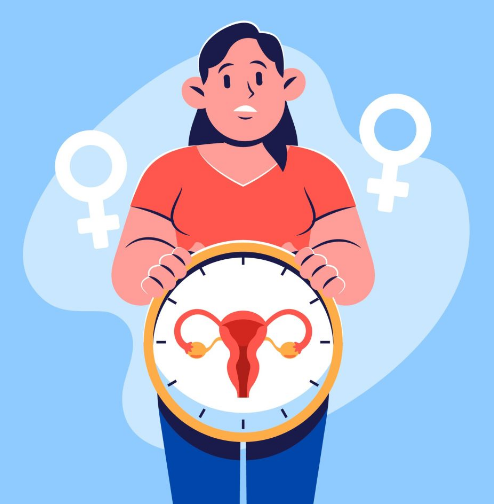Introduction
Menopause is a natural biological process that marks the end of a woman’s reproductive years. It is often accompanied by a range of symptoms, such as hot flashes, night sweats, mood swings, and vaginal dryness, which can significantly impact a woman’s quality of life. Hormone Replacement Therapy (HRT) has long been used to alleviate these symptoms, but its use has sparked debate over potential risks and benefits. In this article, we will explore how HRT works, its benefits, risks, and the latest research to help women make informed decisions.
Understanding Menopause and Hormonal Changes
Menopause typically occurs between the ages of 45 and 55, when the ovaries stop producing eggs and levels of estrogen and progesterone decline. These hormonal changes can lead to a variety of physical and emotional symptoms, including:
- Hot Flashes and Night Sweats: Sudden feelings of heat and excessive sweating.
- Mood Swings: Fluctuations in mood due to hormonal changes.
- Vaginal Dryness: Reduced estrogen levels can cause thinning of vaginal tissue, leading to dryness and discomfort.
- Bone Density Loss: Reduced estrogen contributes to bone weakening, increasing the risk of osteoporosis.
What Is Hormone Replacement Therapy (HRT)?
HRT involves supplementing the body with estrogen, progesterone, or a combination of both to restore hormonal balance during menopause. It is available in various forms, including pills, patches, gels, and creams, allowing for personalized treatment depending on a woman’s symptoms and preferences.
Types of HRT
- Estrogen-Only Therapy: Prescribed for women who have had a hysterectomy. It helps to alleviate hot flashes and prevent osteoporosis.
- Combined Estrogen and Progesterone Therapy: Recommended for women who still have their uterus. The addition of progesterone reduces the risk of endometrial cancer, which can be increased by estrogen alone.
Benefits of HRT
- Relief from Menopausal Symptoms: HRT is highly effective in reducing hot flashes, night sweats, mood swings, and vaginal dryness.
- Bone Health: HRT helps maintain bone density, lowering the risk of fractures and osteoporosis.
- Cardiovascular Health: Some studies suggest that HRT may have a protective effect on heart health when started early in menopause.
Risks and Concerns of HRT
Despite its benefits, HRT is associated with certain risks that need to be considered:
- Breast Cancer: Some studies have linked combined HRT to a slightly increased risk of breast cancer, particularly with long-term use.
- Cardiovascular Issues: While HRT may benefit heart health in some women, others may face an increased risk of blood clots, heart attack, or stroke, particularly if HRT is started later in life.
- Endometrial Cancer: Estrogen-only HRT, when used without progesterone, can increase the risk of endometrial cancer in women with an intact uterus.
Alternatives to HRT
For women who are unable or unwilling to use HRT, there are several alternatives for managing menopause symptoms:
- Lifestyle Changes: Regular exercise, a healthy diet, and quitting smoking can help manage symptoms like hot flashes and improve bone health.
- Non-Hormonal Medications: Antidepressants and other medications may help reduce hot flashes and mood swings without the use of hormones.
- Herbal Supplements: Some women turn to herbal remedies like black cohosh or evening primrose oil, although scientific evidence supporting their effectiveness is limited.
Latest Research on HRT
Research continues to evolve regarding the safety and effectiveness of HRT. A key study, the Women’s Health Initiative (WHI), initially raised concerns about the risks of HRT, particularly related to breast cancer and cardiovascular disease. However, more recent studies suggest that HRT may be safer than initially believed, especially when started early in menopause and used for a short period.
- A 2020 study published in The Lancet confirmed that the risk of breast cancer linked to HRT decreases after discontinuing treatment.
- Other research indicates that women who begin HRT within 10 years of menopause onset may have a lower risk of heart disease than those who start later.
Conclusion
Hormone Replacement Therapy remains one of the most effective treatments for managing menopause symptoms, providing significant relief for many women. However, the decision to use HRT should be made on an individual basis, considering each woman’s medical history, symptoms, and personal preferences. Consulting a healthcare provider to weigh the benefits and risks is crucial to ensuring safe and effective treatment.
References:
- North American Menopause Society. (2017). The 2017 Hormone Therapy Position Statement of The North American Menopause Society. Menopause: The Journal of The North American Menopause Society.
- Santen, R. J., et al. (2020). Postmenopausal Hormone Therapy: An Endocrine Society Scientific Statement. Journal of Clinical Endocrinology & Metabolism.
- Manson, J. E., et al. (2021). Menopausal Hormone Therapy and Long-Term All-Cause and Cause-Specific Mortality: The Women’s Health Initiative Randomized Trials. JAMA.

